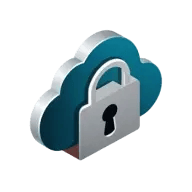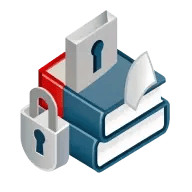Microsoft 365 and Cloud Compliance: Rethinking Data Sovereignty

Microsoft 365 has reshaped modern workplace productivity. From email to document collaboration, few organizations — private or public — can function without it. And yet, behind its convenience lies a growing concern: data sovereignty.
When Convenience Collides with Control
While Microsoft offers local data centers in countries like Switzerland, the company remains a U.S. entity, and that’s a problem. Under the U.S. Cloud Act, Microsoft is obligated to hand over data to U.S. authorities upon request, regardless of where that data is physically stored.
In other words: hosting your documents in a Swiss Azure environment doesn't guarantee they're shielded from foreign access. And that’s not just a hypothetical risk — it's a legal reality with direct implications for compliance with data protection laws.
Headlines are multiplying across Switzerland.
In Switzerland, the issue has become increasingly visible:
- Canton Zurich is rewriting legislation to accommodate Microsoft Cloud use.
- In Geneva, political opposition to Microsoft 365 is mounting.
- In Lucerne, criticism of Microsoft’s cloud offering even led to a cybersecurity officer’s suspension.
The public debate is only the tip of the iceberg. Behind the scenes, IT leaders are focused on addressing one core question:
How do we keep using Microsoft 365 while still protecting sensitive data — personnel records, legal files, confidential documents — from unauthorized or extrajudicial access?
Are there alternatives?
They exist, but come with trade-offs.
Switching to Open Source or European Solutions? In theory, this supports data sovereignty. In practice, there isn’t a European solution that can seamlessly replace M365, Active Directory, and Azure. Open source and EU-based alternatives tend to cover only parts of the stack. Integration is fragmented. The costs — both financial and operational — are simply too high. Most organizations can’t afford the massive productivity loss associated with retraining staff and overhauling core infrastructure.
Changing Laws to Fit the Technology? Some regions are pursuing this. But rewriting legal frameworks to accommodate a foreign cloud provider doesn’t eliminate the underlying risk, it simply shifts the liability.
Encrypt the Data. The most effective path forward is not to abandon Microsoft — but to take control of the keys. Microsoft offers Double Key Encryption (DKE), a feature that allows organizations to encrypt sensitive documents in such a way that Microsoft never has access to the decryption keys. Documents encrypted this way remain unreadable to unauthorized parties, even when stored in the Microsoft Cloud.
Securosys 365: True Ownership, Seamlessly Integrated
At Securosys, we’ve developed a DKE-based solution called Securosys 365 which integrates directly into Microsoft 365. Your sensitive encryption keys are stored securely in our Swiss-based Hardware Security Modules (HSMs) and managed through our Cloud. Microsoft cannot access them.
The setup is quick and straightforward, and your teams can label sensitive documents that must be protected. These documents become invisible to unauthorized viewers, unsearchable by Microsoft, and unreadable without proper permission — even across organizational boundaries.
Yes, there are some limitations: encrypted files won’t appear in SharePoint previews or support browser-based collaboration. But the upside is immense — true control over your sensitive data.
Organizations in Switzerland and Germany are already using Securosys 365 to meet compliance requirements and eliminate sovereignty concerns — without disrupting their Microsoft environment.
This is not a blueprint. It’s a working, real-world solution. Explore the details of Securosys 365.
More than a Swiss problem: A global concern
The tension between foreign cloud providers and local data protection laws is not unique to Switzerland, or even to Europe. This challenge affects every country, every government agency, and every business that handles sensitive or regulated data.
The good news? A clear and effective solution exists.
Data sovereignty doesn’t require giving up Microsoft 365. It requires taking back control of your encryption keys.











